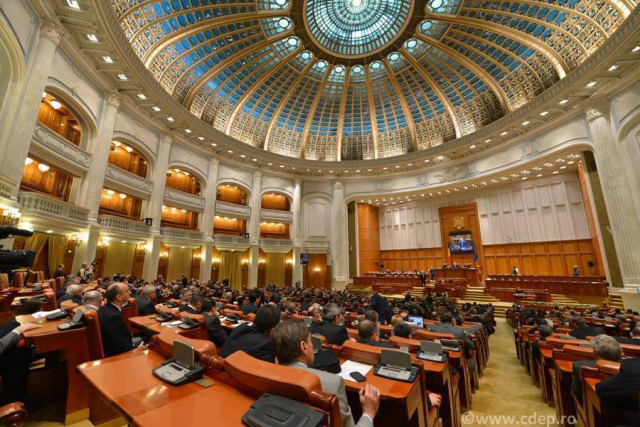Deputies endorse the education laws
The education laws have been endorsed by the Chamber of Deputies and are now to be discussed by the Senate

Ştefan Stoica, 11.05.2023, 14:00
The Romanian Chamber of Deputies endorsed the package of laws that the initiator, the Ministry of Education, says will fundamentally reform the education system. The laws will now be debated by the Senate, which is the decision-making body in this matter. The two bills come with significant changes in pre-university and academic education. These changes are important, because they target the chronic problems of the system, listed by the Minister of Education, Ligia Deca:
Preventing and combating school dropout, combating functional illiteracy, implementing an education centered on the child, the student, the young person, ensuring safety in educational institutions, better training of teaching staff and their support and compliance with deontological ethics and professional code of conduct.
According to the minister, investments, prioritizing the disadvantaged areas with regard to budget allocations and the measures targeting success along the entire educational path are the pillars of this legislative package. The representatives of the parties that make up the governing coalition PSD – PNL – UDMR have stated that they voted for a stable legislative framework in the field of education, anticipating that the results of the new measures will be seen in the years to come. The opposition does not agree, considering that the laws do not address the real issues facing the education system and are a failure of the presidential project Educated Romania.
The law that will govern pre-university education comes with a number of firsts: high schools can opt to organize an additional exam, besides the national evaluation, in order to fill half of the seats, religion becomes an optional subject at the baccalaureate, and the supplies program for students from disadvantaged backgrounds is extended.
Also, the law proposes a national plan to combat violence in schools, which includes video monitoring of classrooms, with the consent of parents, and gradual sanctions for teachers and students who commit disciplinary violations.
There are also changes regarding university education. Thus, the rectors in office will be able to remain in office for another 10 years. At the same time, big fines are provided for people who buy or sell scientific papers, reports, papers for evaluation exams, as well as for the completion of bachelor’s, master’s and PhD studies.
The law also says that the person elected to hold a public office can benefit from a reduction of their didactic workload, but by no more than 50%. The teaching profession must be respected, and the work of teachers appreciated, stressed Minister Ligia Deca. This is what the teachers who marched between the Government and Parliament buildings, on the very day of the adoption of the Education laws, felt entitled to demand, along with a fair and decent salary. (MI)






























